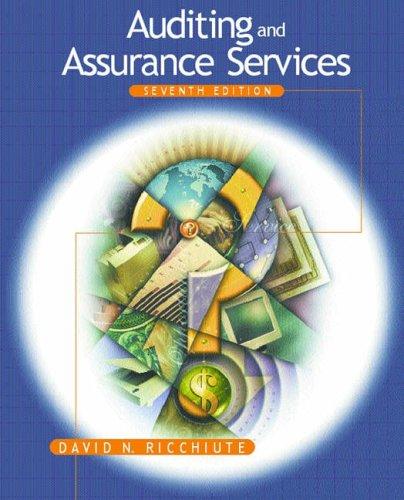Adopted by member vote in 1988, the AICPA's Code of Professional Conduct provides members with principles and
Question:
Adopted by member vote in 1988, the AICPA's Code of Professional Conduct provides members with principles and rules about their responsibilities to the public, to clients, and to their colleagues in practice. The Code applies to all AICPA members, including those in public practice, industry, government, and education. Consider each of the following situations, all of which relate to the audit of, and preparation of tax returns for, Tillinghast, Inc., a privately owned manufacturer audited by the Portland, OR, office of Baker \& Kilmartin LLP, a firm with principal offices in Boise, Portland, and Seattle.
a. Tillinghast plans a deduction under Internal Revenue Code Section 162 for expenses related to forgiving a \(\$ 100,000\) loan to the company's chief executive officer, who holds 10,000 shares of Tillinghast class A common stock. The lead engagement partner believes that the expenses should be treated as a dividend. Management believes that the expenses are immaterial to the financial statements, which report \(\$ 4.5\) million in total assets and \(\$ 5\) million in total sales.
b. Although the lead engagement partner relies on FASB Technical Bulletin No. 79-4 to include Tillinghast's Puerto Rican subsidiary's losses within domestic operations, management produces an article in an accounting handbook to argue that the subsidiary is foreign and, therefore, that the losses can be excluded from domestic operations when the company reports domestic earnings.
c. Baker \& Kilmartin is contemplating a merger with Blass Ecton LLP, a larger West Coast firm that, as part of the negotiations, will review the permanent files, tax files, and audit working papers for Baker \& Kilmartin's largest clients, among them Tillinghast, which is developing new product technologies documented in the permanent file. Upon learning about the merger, Tillinghast management comments that, although Baker \& Kilmartin, the incumbent audit firm, is precluded from disclosing confidential information, Blass Ecton is not.
d. Rather than go public, Tillinghast management plans to seek either a publicly traded acquirer or, failing that, a private placement of debt management plans for expansion. Tillinghast's chief executive and chief financial officers propose that Baker \& Kilmartin participate in Tillinghast's due diligence work for the acquisition and that the firm's audit fees be based in part on a negotiated amount and in part on whether an acquisition occurs.
e. A tax partner has withheld the completed tax return of a board member and major shareholder who refuses to pay the partner's bill.
Required: Discuss whether, in your judgment, each situation raises issues relevant to the AICPA's Code of Professional Conduct.
Step by Step Answer:






